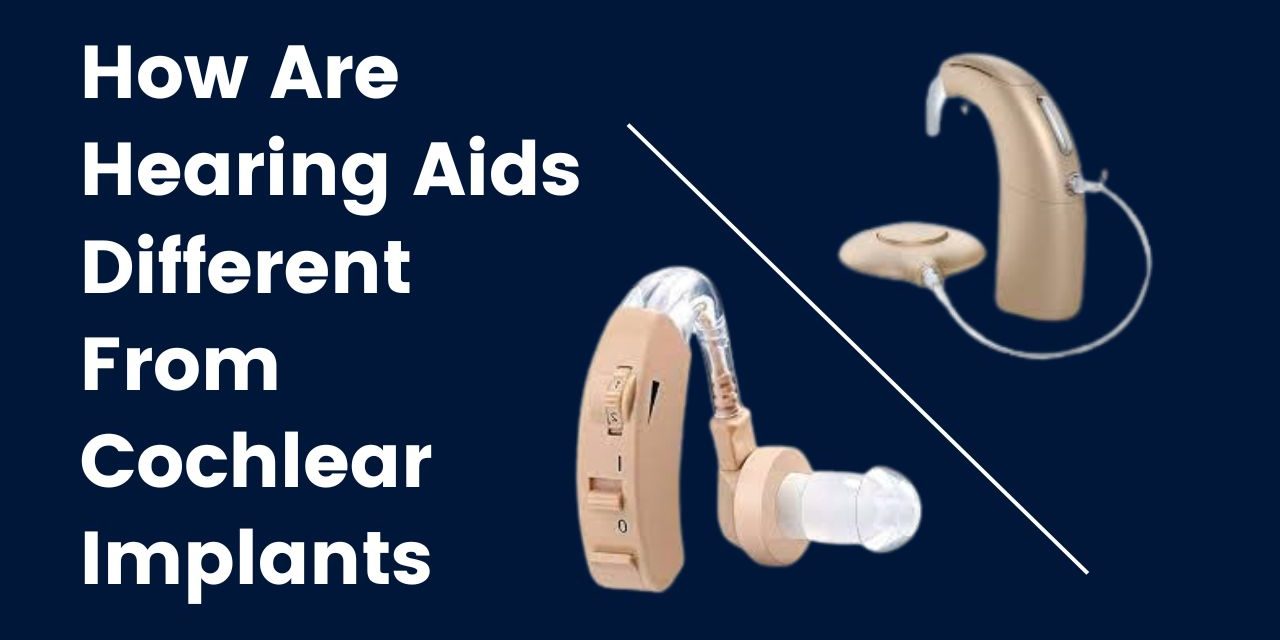Hearing Aids vs. Cochlear Implants: Understanding the Difference
Introduction:
Hearing loss can significantly affect a person’s quality of life, and advances in technology have provided a variety of treatment options to address this problem. Two commonly used solutions for hearing loss are hearing aids and cochlear implants. In this blog post, we’ll explore the key differences between hearing aids and cochlear implants to help you understand which option may be more suitable for your specific needs.
1. Function and purpose:
Hearing aids:
Hearing aids are electronic devices designed to amplify sound for the hearing impaired. They capture sounds from the environment, process them, and transmit the loud sound directly to the ear. Hearing aids are beneficial for people with mild to moderate hearing loss, and they work by enhancing the wearer’s natural hearing abilities.
Cochlear Implants:
Cochlear implants, on the other hand, are more complex devices that directly stimulate the auditory nerve. They are usually recommended for people with severe to profound hearing loss who would not benefit from hearing aids. Cochlear implants bypass the damaged parts of the inner ear (cochlea) and directly stimulate the auditory nerve, allowing the individual to perceive sound.
2. Location and Ingredients:
Hearing aids:
Hearing aids are worn externally and consist of three main components: a microphone, an amplifier, and a speaker. They are usually placed behind the ear (BTE) or in the ear (ITE). The microphone picks up the sounds, the amplifier processes and amplifies the sounds, and the speaker delivers the amplified sound to the ear canal.
Cochlear Implants:
Cochlear implants include both external and internal components. The external component, worn behind the ear, includes a microphone that picks up sounds and a speech processor that converts sounds into electrical signals. These signals are then transmitted to the implant, which is surgically implanted under the skin. The internal component consists of an electrode array that directly stimulates the auditory nerve, bypassing the damaged cochlea.
3. Candidates and Eligibility:
Hearing aids:
Hearing aids are suitable for people with mild to moderate hearing loss, including age-related hearing loss, conductive hearing loss, or some types of sensorineural hearing loss. They can be customized to meet the wearer’s specific hearing needs and offer a variety of features to improve sound clarity and comfort.
Cochlear Implants:
Cochlear implants are typically used for people with severe to profound sensorineural hearing loss who do not benefit from hearing. They are usually used for people with congenital hearing loss, progressive hearing loss, or significant damage to the cochlea. Cochlear implants provide a greater level of auditory stimulation by directly stimulating the auditory nerve, allowing the perception of sound.
4. Results and Expectations:
Hearing aids:
Hearing aids help amplify sounds and improve the overall quality of sound perception. They can enhance speech intelligibility, provide better awareness of environmental sounds, and facilitate better communication in a variety of listening situations. However, their effectiveness may vary depending on the degree and type of hearing loss.
Cochlear Implants:
Cochlear implants offer a more direct and intense form of auditory stimulation than hearing aids. They provide an opportunity for individuals with severe to profound hearing loss to regain access to sound and develop spoken language skills. Cochlear implant users often report improved speech understanding, better sound discrimination, and overall increased communication skills.
Result:
Both hearing aids and cochlear implants are valuable tools for managing hearing loss, but they differ in function, suitability, and outcomes. Hearing aids are suitable for mild to moderate hearing loss and work by amplifying sounds, while cochlear implants are recommended for severe to profound hearing loss and direct stimulation of the auditory nerve. The choice between hearing aids and cochlear implants depends on the individual’s specific hearing needs, the degree of hearing loss and the recommendations of the audiologist or ENT specialist. Consultation with a healthcare professional experienced in hearing loss treatment is essential to determine the most appropriate option for each individual.










